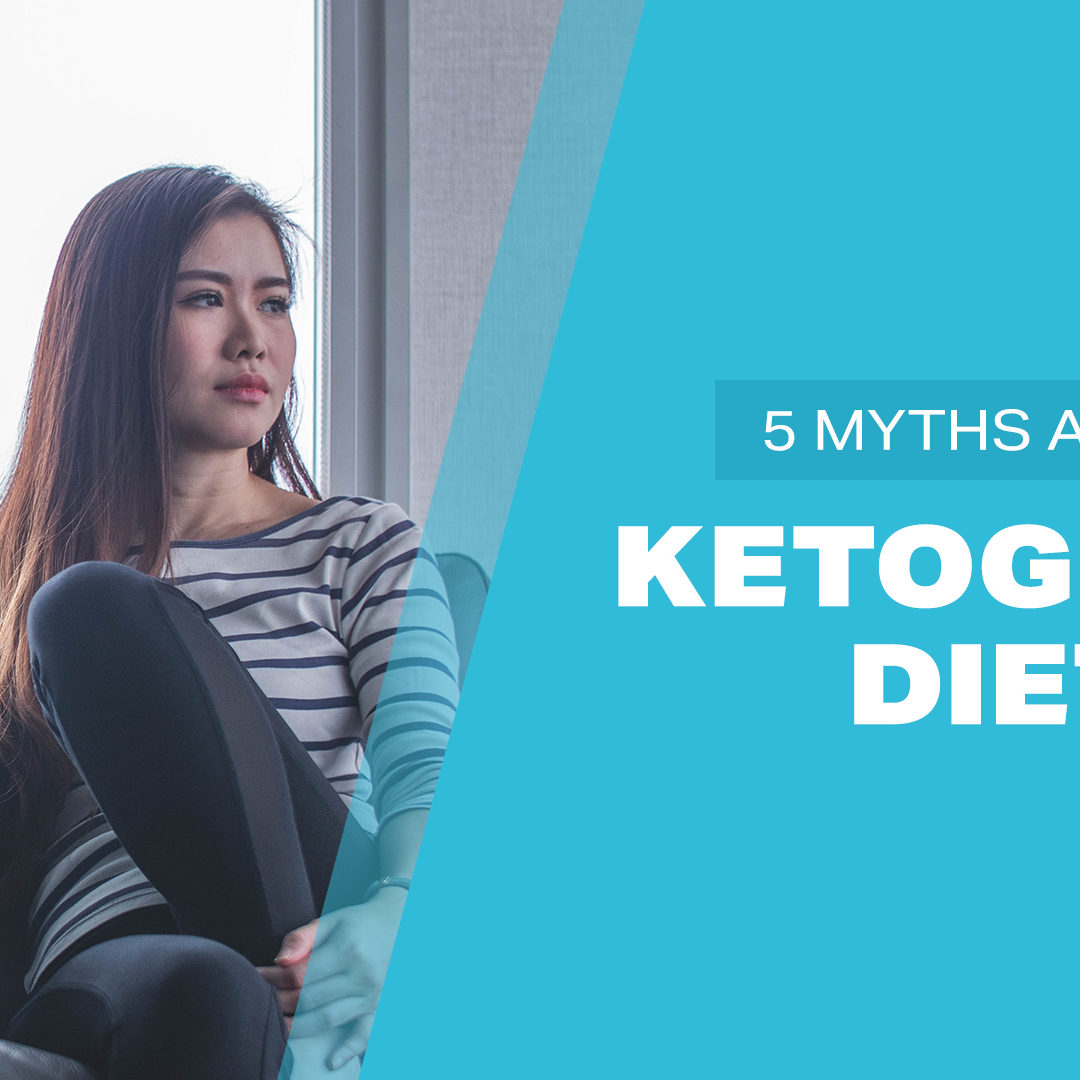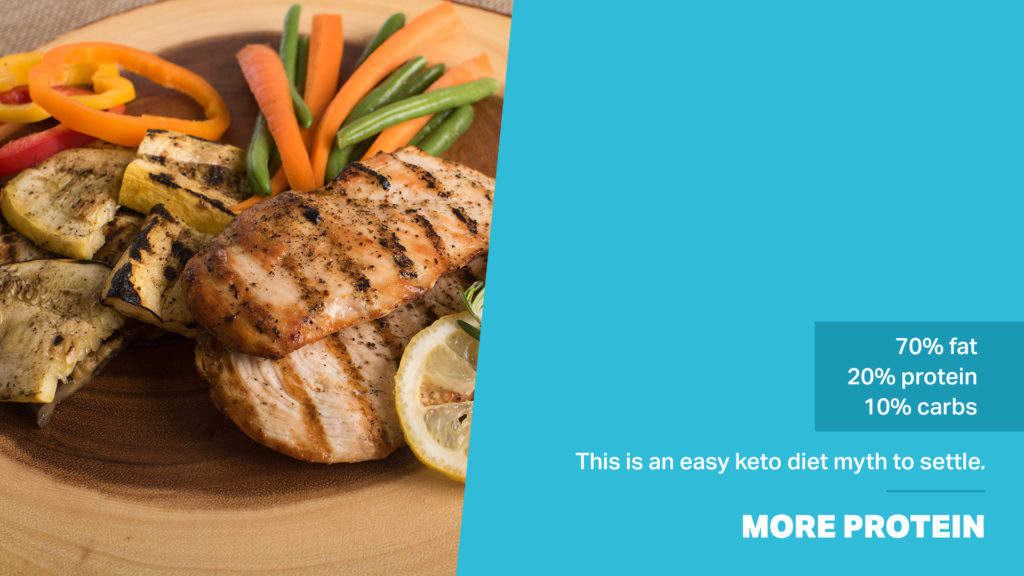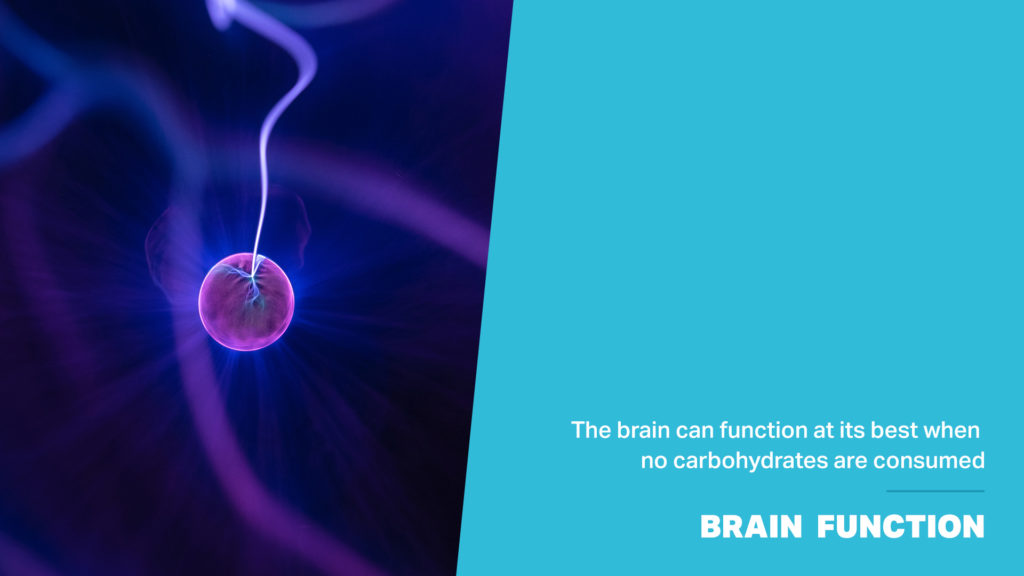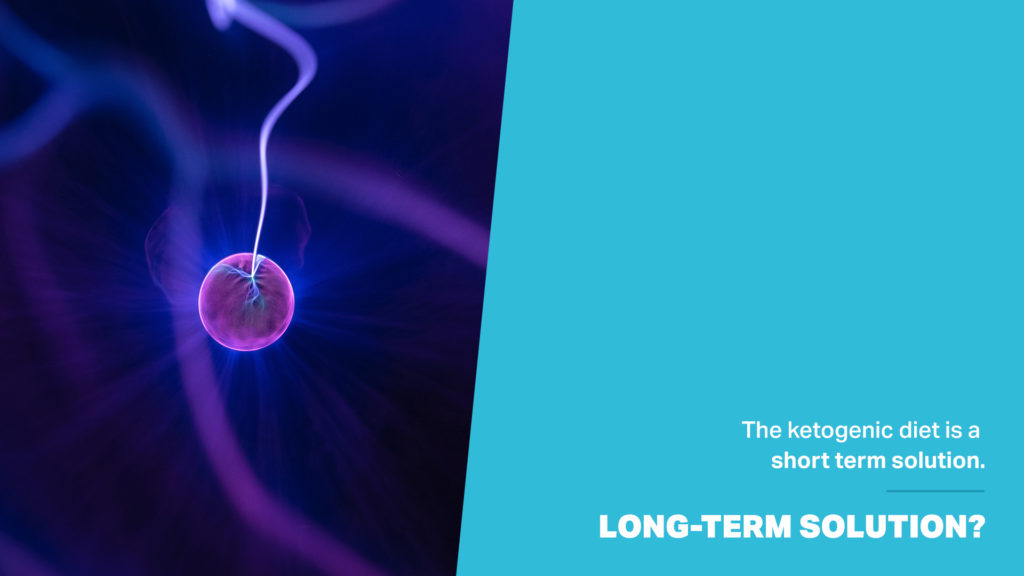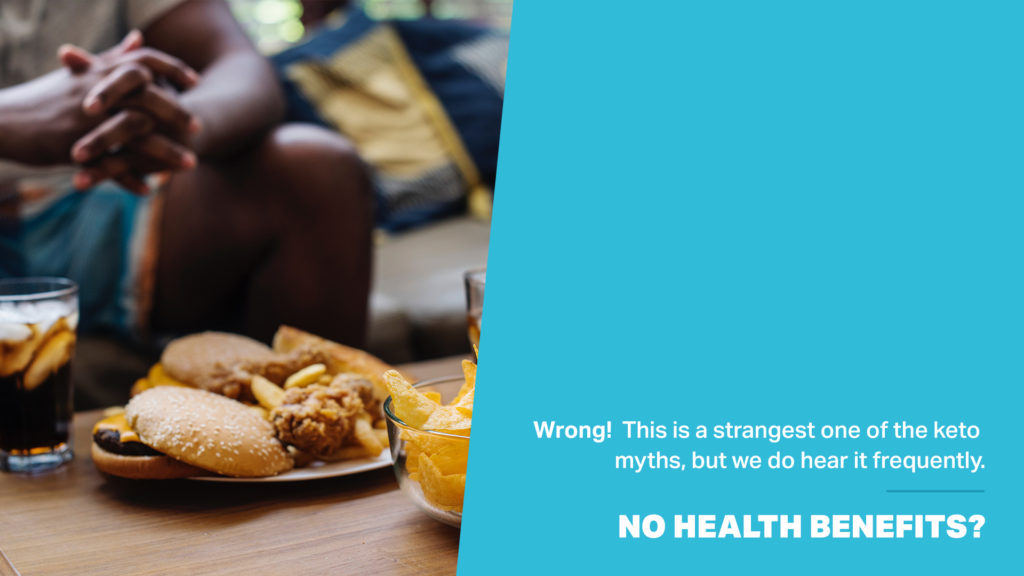OAs with all of the best-kept secrets, rumors spread like a broken telephone game. Information gets marred, facts are passed along incorrectly and supposed myths appear. Then the debunking comes. Speaking of that, here are our top 5 keto diet myths that often cause confusion, for which we want to set the record straight:
Table of Contents
1. Apparently, Ketosis And Ketoacidosis Are Exactly The Same Outcomes
Let’s get this right from the get-go; just because these two words contain many of the same letters does not mean that they are the same thing. They are very different. In fact, their difference is quite literally a case of life and death.
What Is Ketosis?
To define ketosis is to look into the metabolic rate of the body where the levels of ketones have been increased. Ketosis occurs when the body is not taking on enough glucose in order for function to occur normally. It needs to find a new energy source, and the best one to rely on in this case is fat. Fat is consumed and immediately used as energy, so it is not stored within the body at all. It can take different lengths of time for people to reach the state of ketosis, but it does naturally occur within all of us.
What Is Ketoacidosis?
Ketoacidosis is a life-threatening state which occurs in diabetics where there is not enough insulin left within their bodies. Harmful ketones are emitted and must be treated quickly to avoid death.
So are ketosis and ketoacidosis the same thing? No, that’s our first keto diet myth dispelled. They might be similar in their title spelling but are very different in their definition. What’s the next keto myth?
2. You Have To Consume More Protein Than Any Other Food Group When On The Keto Diet
This is an easy keto diet myth to settle. For the ketogenic diet to be successful, especially when it is undertaken to aid with weight loss, the simple rule of 70/20/10 must be applied. It is broken down as follows on a daily basis:
- 70% fat
- 20% protein
- 10% carbs
Now, we may not all be math professors, but it is quite clear from this evidence that it is fat that outranks all other food groups. 3.5 times the amount of fat is required every day in comparison to protein intake. Hope that sets the record straight.
3. The Brain Can Function At Its Best When No Carbohydrates Are Consumed
This, sadly, is another example of the widely believed keto diet myths. However, it is easy to see why this keto myth gets confused.
The body can run well, as can the brain when limited amounts of carbs are consumed. During the keto diet, the body uses fat as its fuel instead of carbohydrates. The fat supplies are transported to the liver and rematerialize as ketones that are used to fuel the brain and keep it functioning aptly. The brain can survive without carbohydrates, but this is not recommended to happen for long periods of time. This is why the keto diet recommends that there are “refeed” days, where the 70/20/10 rule is altered so that a higher amount of carbohydrates are consumed for at least one, if not two, days each week. However, this does not mean to say that you have to run out and spend the day eating pizza (sorry!), it actually means that whole foods, high in complex carbs, are consumed instead.
What Foods Are Classified As Complex Carbs?
There are more foods that contain these clever carbohydrates than you may initially think. These can include:
- Sweet potatoes and yams
- Brown rice
- Whole wheat bread and whole wheat pasta
- Beans, lentils, and quinoa
- Multigrain cereals and oatmeal
Having such varied options (the above list is not exhaustive) enables the ketogenic diet not to grow boring, and therefore people stand a much better chance at sticking out their new regime, succeeding on their path to weight loss. There you have it – another keto myth corrected. Our bodies need carbohydrates to function at their optimum capacity.
4. The Keto Diet Is An Excellent Long-Term Solution
The truth is that the ketogenic diet is a short term solution. It is often suggested by a medical professional to help with more long term problems, such as obesity, diabetes, and epilepsy. When using the keto diet, yes weight loss occurs, but long term the body requires carbohydrates for the brain to function best. The keto diet uses the 70/20/10 regime, where only 10% of the daily food intake is made up of carbohydrates. This is sustainable for short periods of time, but the body requires “refeed” days in order to stock up on its carb intake and enable the brain to fully function once more. Do not think that it is all about the brain either. There are other areas of the body that require carbs to work properly, including that of:
- The kidneys
- The nervous system
- Red blood cells
Prolonged periods of time on the 70/20/10 keto diet could actually cause more damage than good, and when you are working so hard to lose weight, control diabetes or reduce seizures, this is not the desired outcome at all.
5. There Are No Health Benefits To Being On The Keto Diet
Wrong! This is a strangest one of the keto myths, but we do hear it frequently. Any small amount of research undertaken when you look into the keto diet for health benefits show you immediately how good it can be for you and your body. Here are our favorite health benefits to partaking in the keto diet and eradicating the keto diet myths related to this topic:
- The keto diet provides a great way to lose weight.
- Helps to get diabetes under control and stay under control for life.
- The keto diet was initially advised by doctors to help epilepsy patients to reduce the frequency and/or severity of seizures in their patients.
- For people suffering from acne, the reduced carbs, consumption of complex carbs, eradication of processed foods and the change to good quality produce, whole foods and grass-fed meats can drastically reduce acne, flare-ups, and frequency of pimples.
- Often used as a diet to use in unison with chemotherapy or radiation when people with cancer are in treatment. This is because the keto diet enables more oxidative cells containing cancer to become attacked. There is also research suggesting that reducing blood sugar levels is helpful because high insulin complications occur with many forms of cancer and the keto diet would reduce this from occurring.
- Following the keto diet diligently reduces the cholesterol of the user, which, in turn, increases the health of their heart.
Setting The Keto Myths Straight
It’s a habit we all have. We hear one bad thing from one disappointed acquaintance, and we are forever put off by what they are saying. We do not know the exact circumstances in which their disappointment occurred.
They may not have had all the information that they needed before they began their own keto diet journey, they may not have undertaken the diet in the correct manner, or they could have been unaware of the “refeed” days which made their keto mission too difficult and dangerous. There’s also the element of Chinese Whispers occurring, too. Information travels and facts easily get misconstrued. Why not undertake some research for yourself or give the keto diet a try to dispel all of the myths we know to be common misconceptions?
By breaking down the five most common keto diet myths and correcting the mistakes made, we hope that this article has given you a better understanding of what the keto diet is all about. In brief, here’s a summary:
- Ketosis and ketoacidosis are very different things. Ketosis is a metabolic state good for short term health benefits, whereas ketoacidosis is where a dangerously high level of acid is present in the blood and this can be life-threatening.
- Protein is not the main source of food when participating in the keto diet. Fat is the main source of food making up 70% of your daily allowance, with protein making up just 20% each day.
- The brain can function for short periods of time with limited carbohydrates, but this is not a long term solution. Carbohydrates are needed for optimum brain function which also aids other bodily functions, such as the nervous system.
- The keto diet is not a long term solution. It is actually a short term solution to chronic conditions such as epilepsy, diabetes, and obesity.
- There are lots of health benefits to being on the keto diet temporarily, including increased heart health, a decrease in cholesterol, weight loss assistance, diabetes management, a reduction of seizure frequency and severity, as well as promoting clear skin and reducing the challenges of obesity.
